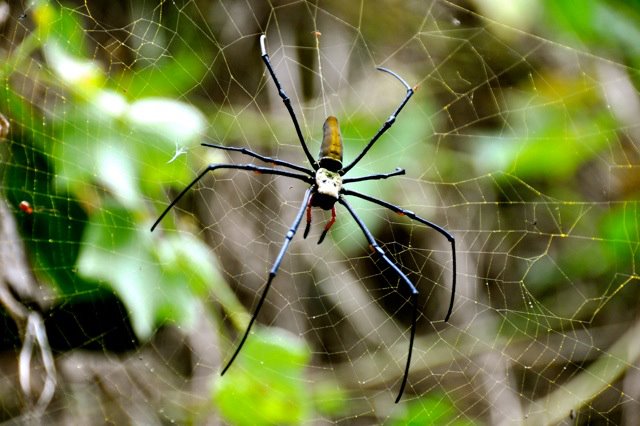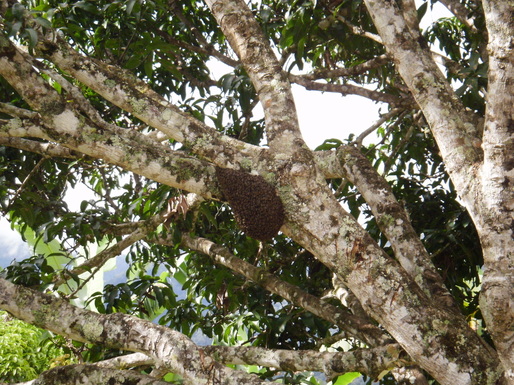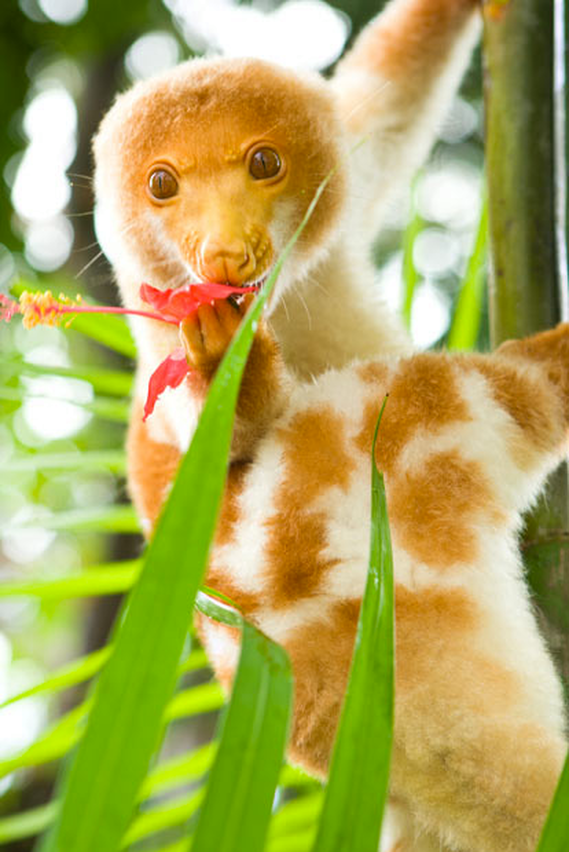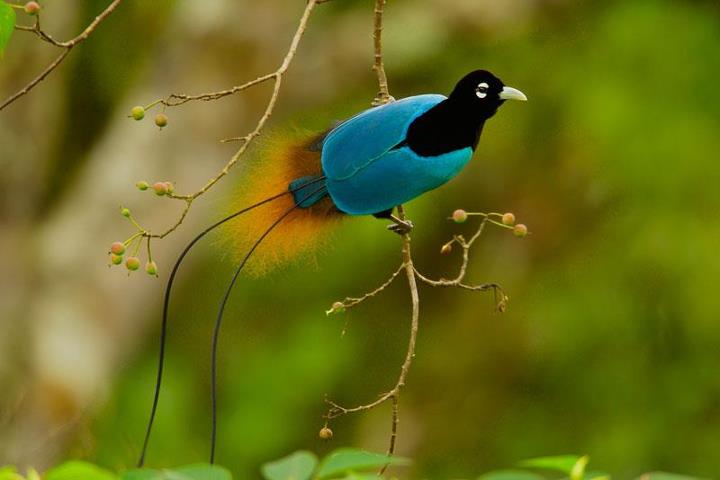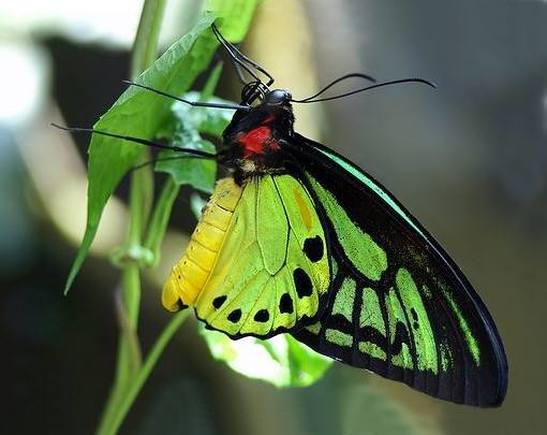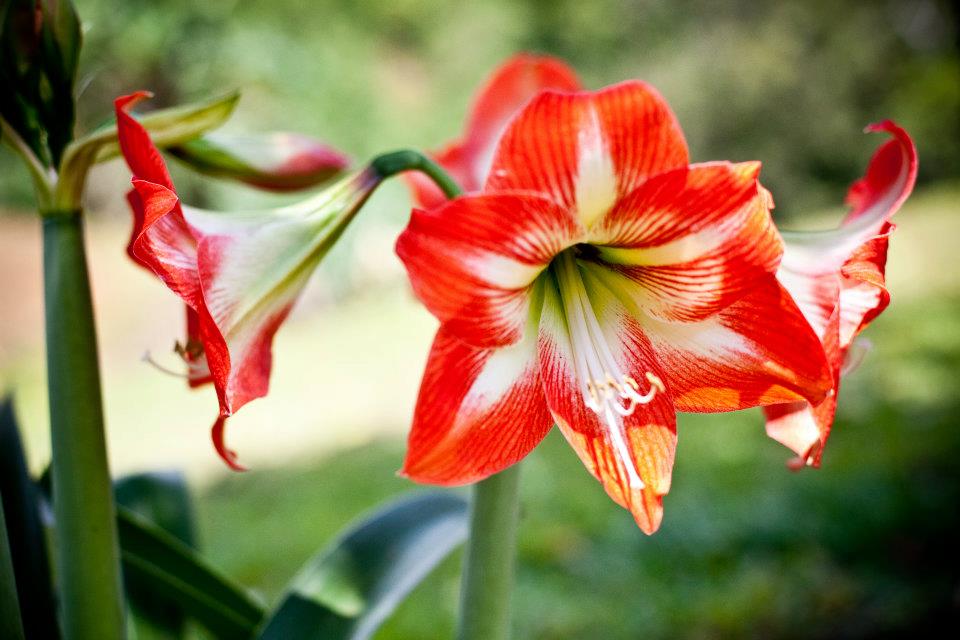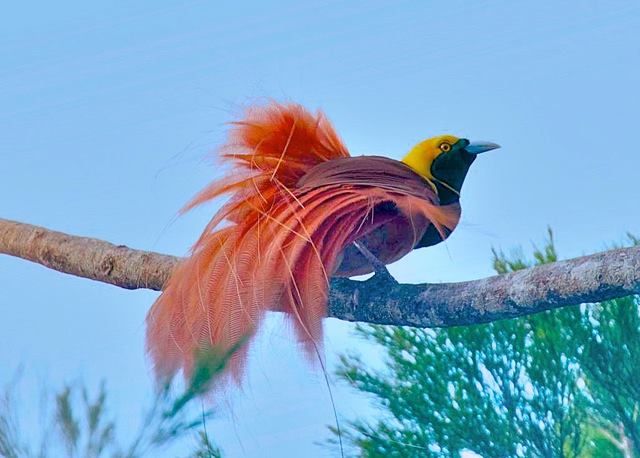The environment you will be walking through is a rugged mountain range complete with all the animals, plants and insects you would expect to find in a remote jungle. Australia and New Guinea are portions of the ancient super continent of Gondwana, which started to break into smaller continents in the Cretaceous era, 65 to 130 million years ago. PNG shares a large number of plants, animals and insects with those found in Australia.
As you trek along the Track you may see wild bees, snakes (100 species of snakes in PNG of which only 53 are venomous), wild pigs, spiders, scorpions, and many other kinds of insects. Leeches are not really a problem any more. Having said that, it is rare to see them as they typically stay off the track and keep to the jungle undergrowth. No Roads recommends, and will remind you to wear footwear at all times and to check the ground for signs of insects before sitting down.
As you trek along the Track you may see wild bees, snakes (100 species of snakes in PNG of which only 53 are venomous), wild pigs, spiders, scorpions, and many other kinds of insects. Leeches are not really a problem any more. Having said that, it is rare to see them as they typically stay off the track and keep to the jungle undergrowth. No Roads recommends, and will remind you to wear footwear at all times and to check the ground for signs of insects before sitting down.
As you prepare for your sleep overnight you should always move your packs inside your tent or guesthouse and shut the fly/door so that dogs, cats or other hungry village animals don't ransack your pack for food or snacks. Dogs have been known to steal boots so keep them inside also. In the guesthouses, don't leave snacks or other food out as a bush rat (harmless) might be attracted to the smell of the food and make a mess of your pack whilst you are sleeping.
In some locations you will walk through areas with stinging plants that are painful when their leaves touch your bare skin, if you brush into them. The expedition guide and lead guide will identify these plants so you can avoid them. There are only a few sections where the stinging plants exist directly along the side of the track.
In some locations you will walk through areas with stinging plants that are painful when their leaves touch your bare skin, if you brush into them. The expedition guide and lead guide will identify these plants so you can avoid them. There are only a few sections where the stinging plants exist directly along the side of the track.
Papua New Guinea is a cornucopia of ecology. It ranks within the top five most diverse countries in the world with an estimated 21,000 types of higher plants, 242 species of mammals, and 762 species of birds. There are 43 known species of Bird of Paradise on our planet, 38 of these are found in Papua New Guinea.
More information:
More information:
